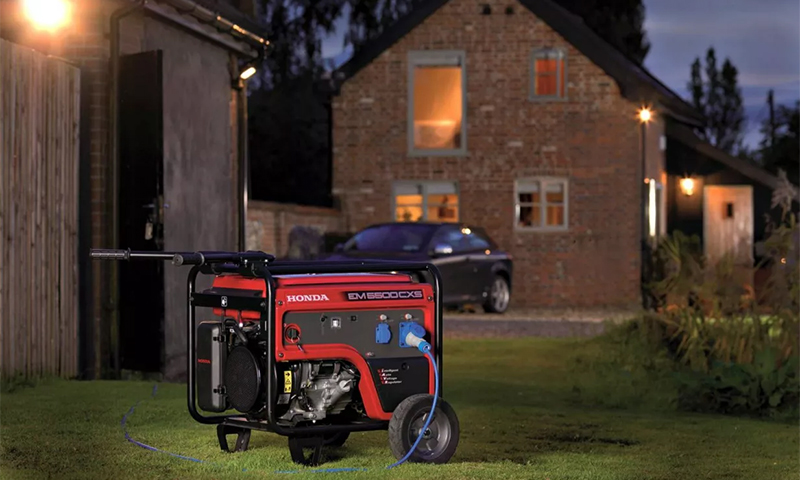For one, a dacha is a place of rest, where he spends time, comfortably sitting in a lounge chair. The second is aimed at harvesting, and the third uses it as an open-air workshop. But, whatever the dacha is for its owner, the electricity at the dacha will increase the quality of the owner’s rest and expand the field of his possible activities.
Our article will help in the choice of a generator used in rare cases, or vice versa, capable of providing electricity for the summer cottage day and night.

Content:
The best manufacturers of generators to give - which company to choose
Choosing an electric generator it is necessary to focus on manufacturers, whose products have proven themselves in the market in the best way.
If it is not possible to dive into the study of the features of the equipment, we recommend to pay attention to the brand generators:
1. Champion
2. Fubag
3. Hyundai
4. Patriot
5. Bison
You can save time and get acquainted with specific models of equipment in the ranking of the best generators to give. It is possible to draw conclusions about the advantages and disadvantages of various types of generators and to understand which installation parameters are necessary in a particular case after reading the article.
The design and principle of operation of generators
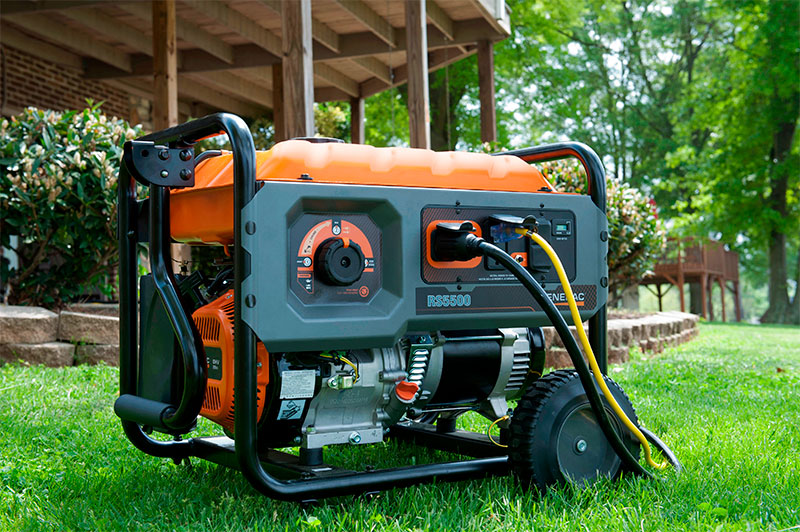
The main structural elements and components of the generator:
1. The frame is a steel structure inside which all other components are mounted.
2. Internal combustion engine - a source of mechanical energy.
3. Generator (alternator) - a converter of mechanical energy into electrical energy.
An alternator converts the mechanical energy of a rotating motor shaft into electrical energy.
Its main elements are:
- A fixed stator consisting of a core and a winding;
- Movable rotor (electromagnet) located inside the stator;
- The motor shaft rotates the rotor, causing changes in the magnetic field of the stator, induction current occurs.
The method of transmitting the magnetic field to the stator windings depends on the design of the alternator, which can be:
1. Synchronous - using brushes (brushes - sliding contacts on the rotor).
2. Asynchronous (brushless) - the residual magnetization of the rotor is fed to the stator.
Types of generators
Types of generators and their use depending on the working fuel
Diesel installations
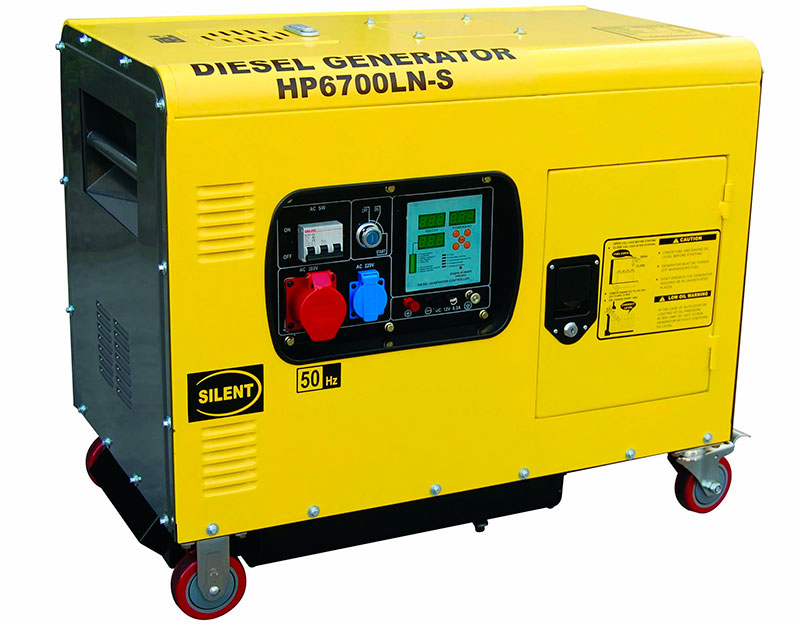
Diesel-powered generator is the best option for a constant power supply of a summer cottage. If the suburban area is located in an area where there are no power lines, this self-contained energy source can become a full-fledged alternative to them.
The peculiarity of the equipment is stable working conditions even with continuous use without interruption. Diesel fuel burns better after the engine is warming up, while the percentage of harmful substances, including carbon monoxide, to the atmosphere is significantly reduced.
The generator can be used without interruption for a certain time. The maximum duration of non-stop operation depends on the device model. In this case, the determining factor is the volume of the tank.
On average, generators designed for use at the dacha operate in continuous mode from 8 to 12 hours. After that, it is necessary to refuel the equipment, before which the generator should cool down. To refuel a working power plant is strictly prohibited by manufacturers.
Benefits:
- The possibility of continuous work for a long time;
- Long-term service life due to the significant lifespan of a diesel engine;
- Profitability due to lower fuel consumption compared to the “appetite” of the gas generator and lower diesel fuel price. Under equal operating conditions and the recommended load of 75%, the diesel “consumes” 60% less fuel per hour;
- Safety - accidentally spilled diesel fuel does not evaporate and does not form flammable vapors.
Disadvantages:
- The price is higher than the gasoline generators;
- Higher noise level;
- Minimum load not less than 30%;
- Guaranteed start at -5 ° C. In winter, heating is necessary, the use of seasonal fuels and lubricants;
- The need for regular MOT.
Gasoline installation
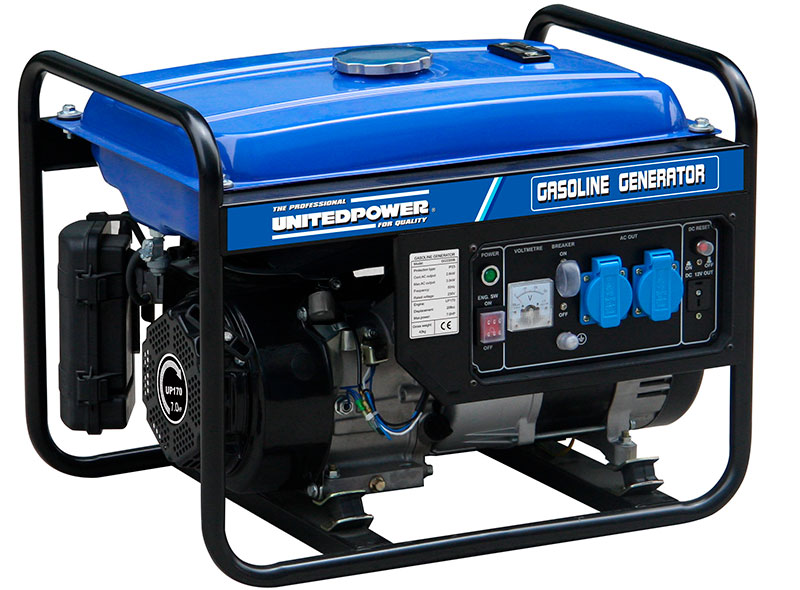
If it is intended to use the generator in short periods of time in the event of a power outage, the right choice is a generator running on gasoline.
The fuel for the stations is high-octane grades of gasoline (A92, A95). The specific composition and other characteristics of the fuel determines the manufacturer.
Benefits:
- Low price;
- Simplicity of service (it is necessary to clean spark plugs from time to time);
- Low noise level;
- Wide temperature range of operating modes. It is guaranteed to start even in cold weather at temperatures up to -20 ° C;
- Compactness and low weight compared to diesel stations;
- It is easy to find gasoline, if the reserve for the generator is unexpectedly over - you can drain the fuel from the gas tank of your own car or borrow it from other motorists;
- Possibility of installation in a room with an exhaust hood, providing exhaust gas outflow.
Disadvantages:
- They can not work for a long time without interruption (4-8 hours duty cycle) - they need a technical break for cooling;
- High fuel consumption: on average, consume 60% more fuel than diesel stations. Gasoline is more expensive than other fuels;
- Relatively low lifespan;
- Need protection from moisture.
Gas installations
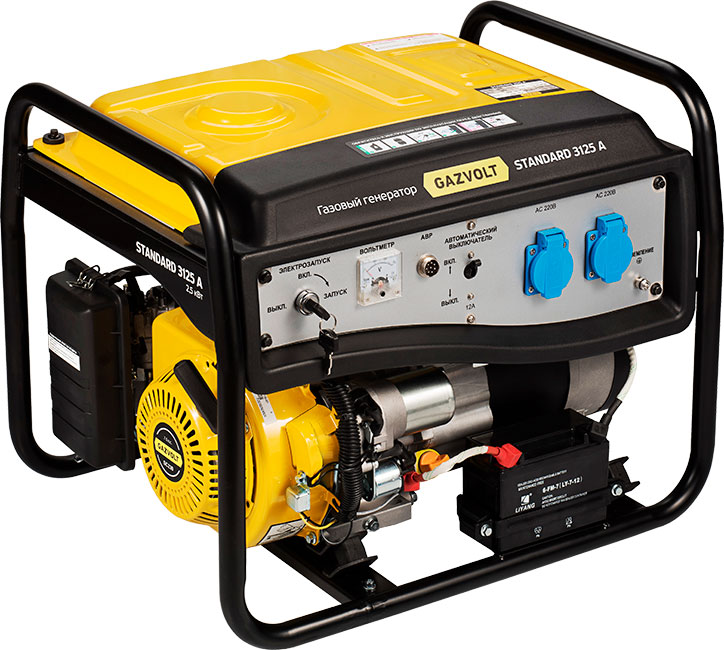
It is rational to use a gas generator at the dacha, which is gasified (a gas pipeline is installed), or there is a place in the country for storing gas cylinders.
It should be noted that the installation of any equipment operating on gas must be coordinated with the local gas service. In this case, service workers need to provide documents that are issued upon acquisition of the station: a certificate and a technical passport of the generator.
Gas pressure is affected by stable gas operation ranging from 2 thousand to 6 thousand Pa. If the equipment is designed for the use of a main gas, it is necessary to make sure that the pressure in the pipes corresponds to this limit.
Benefits:
- The energy generated by the gas generator is the cheapest. The production of one kilowatt of electricity requires about 0.3 m³ of gas. With the cost of main gas of 4.5 rubles per 1 m³, the price of 1 kW of electricity will be equal to 1.35 rubles;
- Increased lifespan and ease of maintenance: the gas does not form solid combustion products that affect the wear of parts; the equipment does not need periodic cleaning;
- In addition to electric energy, a gas generator produces heat, which can be used to heat a room, this is especially important for the northern and far eastern regions (specially designed models are used to heat a home);
- The high efficiency of the installation - when using bottled gas, it exceeds the efficiency of diesel and gasoline generators by 2 times, and when using main gas - by 15-17 times.
Disadvantages:
- High price;
- More complex design in comparison with diesel engines and gas generators - in case of equipment failure, the help of service centers specialists will be needed;
- Additional installation costs and the need for its coordination with representatives of the gas service.
Combined installations
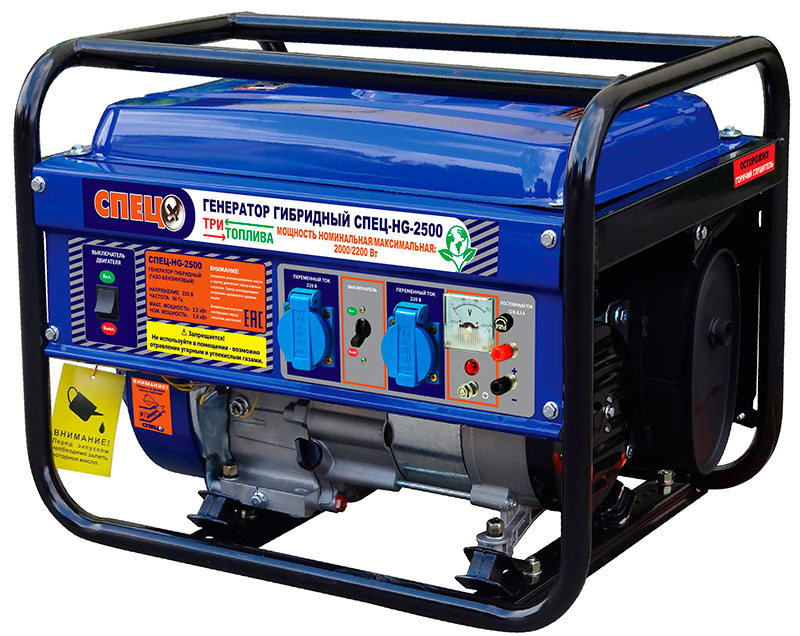
Multi-fuel models are designed to use several types of fuel: gasoline, liquefied bottled gas and (or) main gas.
Advantages:
- The combination of reliability and convenience of the gas generator and efficiency and environmental friendliness of gas equipment.
Disadvantages:
- High price.
The use of equipment depending on the alternator, especially the inverter generator
The type of alternator installed in the equipment determines the possibility of using an electric generator to power various groups of electrical equipment (sensitive to voltage surges or creating large peak loads when switched on).
Synchronous generator
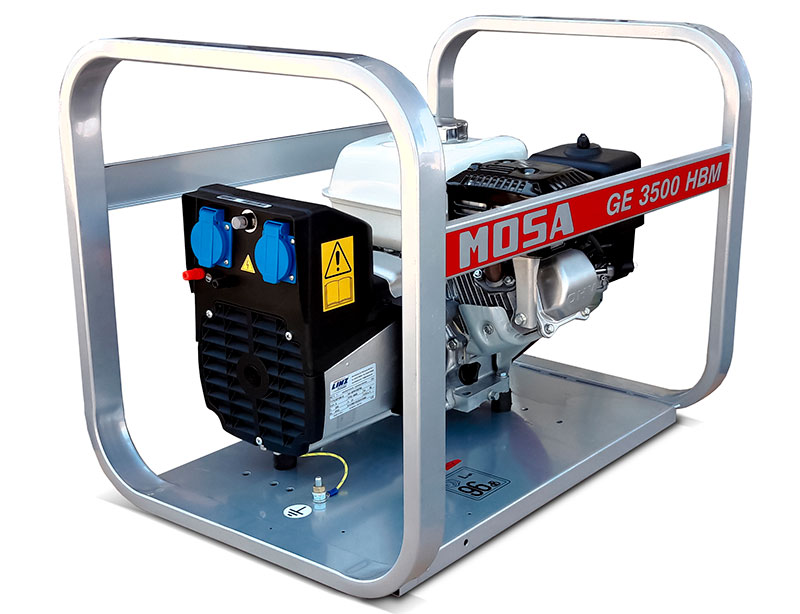
A synchronous generator is installed at the dacha where electrical appliances susceptible to voltage drops (TV, computer, refrigerator) will be used.
Advantages:
- Produces high quality current, output voltage without jumps and drops;
- Withstands triple short-term starting overload;
- Reliability.
Disadvantages:
- Sliding brushes on the rotor causes it to overheat. Air cooling of the rotor with the help of a fan provokes the intake of dust and dirt. During active operation, the equipment needs regular maintenance;
- Low-cost models have a low protection class;
- The need to replace brushes that wear out over time;
- Higher price in comparison with brushless models;
- It creates radio interference.
Asynchronous generator
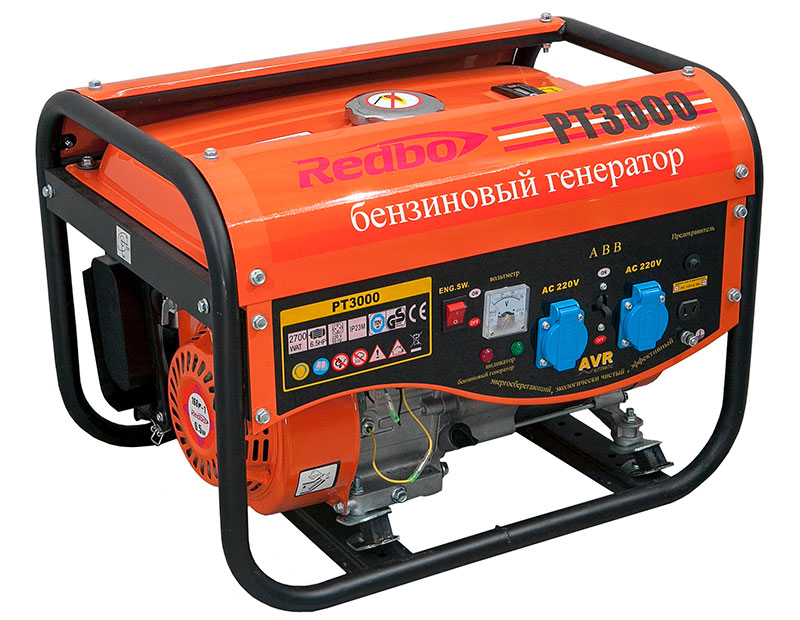
If construction and welding works are carried out at the dacha, or the generator is supposed to be used outdoors, an asynchronous generator is needed.
Advantages:
- Lower price;
- The rotor does not overheat;
- High degree of protection against dust, dirt, moisture;
- Smaller size and weight;
- Not afraid of short circuits, which is important when connecting the welding machine.
Disadvantages:
- It produces low quality current and unstable voltage;
- Not able to carry peak loads (increased power consumption when turning on appliances with motors and heating elements).
Inverter generator
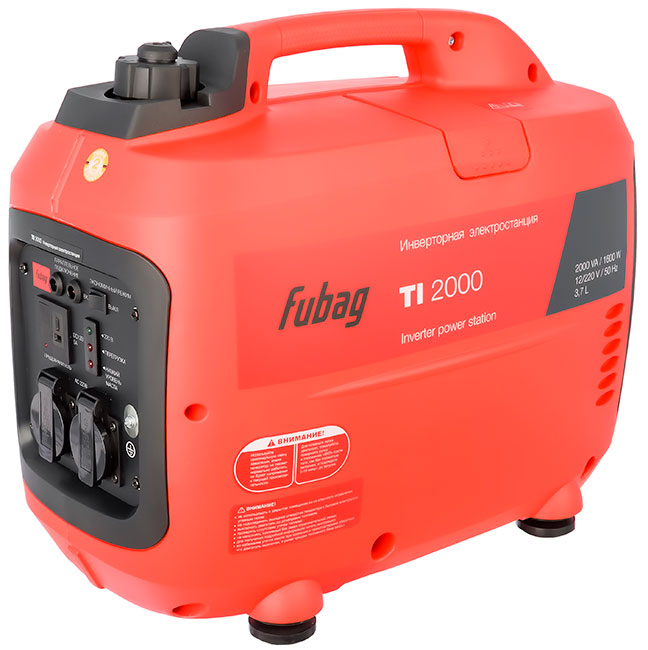
Inverter generator is recommended to purchase at the cottage for powering sensitive electronics. The peculiarity of the generator is that the generated current is not transmitted directly to consumers. Initially, the alternating current is converted to direct current, after which it is accumulated in the battery. Then it is converted again into alternating current, but with ideal parameters and subsequent distribution to consumers.
Advantages:
- High characteristics of the generated current;
- Profitability due to reduced fuel consumption - engine rotational speed depends on current needs (in conventional generators this speed is constant);
- Compactness (the size and weight is almost half the size of conventional equipment);
- Low noise.
Disadvantages:
- High price;
- The battery cannot be replaced by itself. In case of its failure, you will have to contact specialists.
Use of two-stroke and four-stroke generators
Internal combustion engines installed in generators differ in the number of cycles (tact is the piston movement up or down), during which the working cycle is carried out.
Four stroke generator
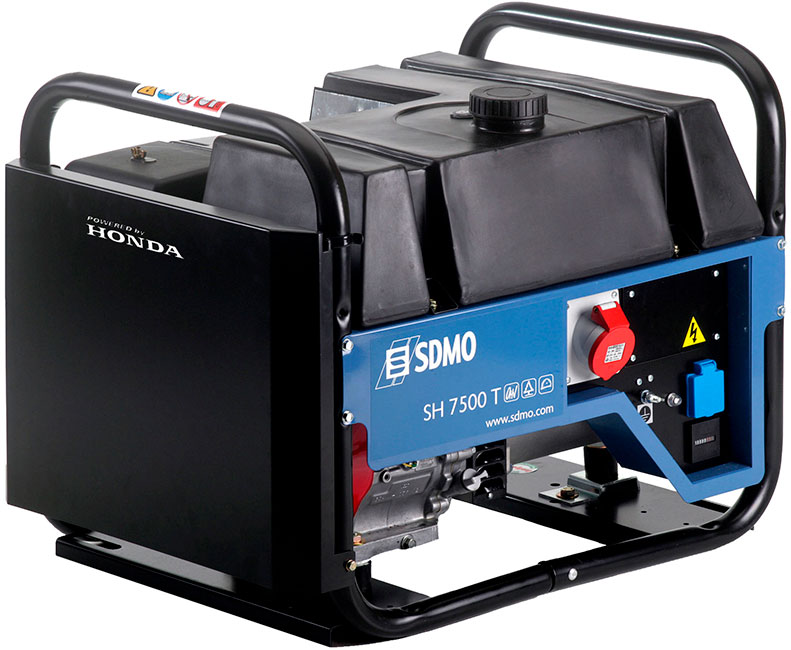
For the dacha, where it is supposed to use the station for long periods of time (5-10 hours, around the clock), a generator with a four-stroke engine is necessary. As a rule, such an engine is installed in equipment with a capacity of more than 1 kW.
Advantages:
- High power;
- Having its own mechanism of lubrication with oil, there is no need to prepare an oil-gasoline mixture for refueling. Gasoline and oil are poured separately;
- Resistance to stress, reliability;
- Economy - fuel consumption is 20-30% lower than that of the two-stroke;
- Less noisy than two-stroke.
Disadvantages:
- Design complexity;
- More complex care;
- At low temperatures, it can be difficult to start.
Push pull generator
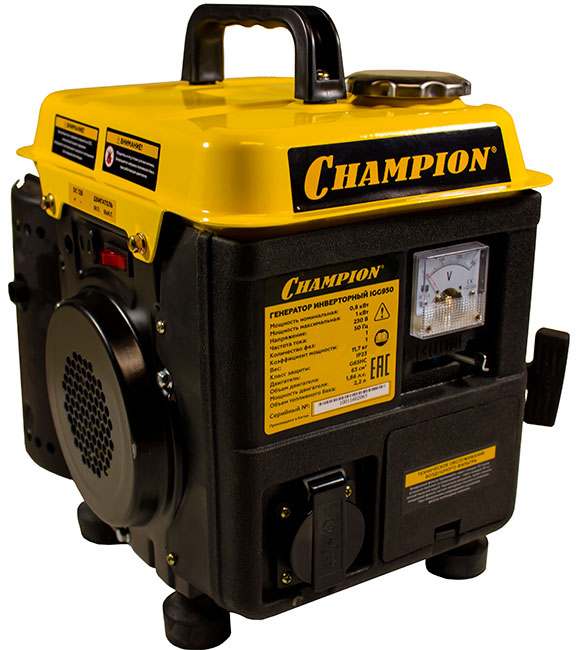
As a backup power source for the dacha, where electricity consumers do not need high power, you can purchase a generator with a two-stroke engine.
Advantages:
- Easy to start at low temperatures;
- Unpretentious in operation;
- Easy to maintain;
- It has less weight and dimensions.
Disadvantages:
- For refueling, it is necessary to prepare a fuel mixture of gasoline and oil in the proportion specified by the manufacturer;
- Higher noise level;
- Toxicity of exhausts.
Using a generator depending on the type of engine cooling
In the course of work the engine of the generator heats up and needs cooling.
Liquid cooling
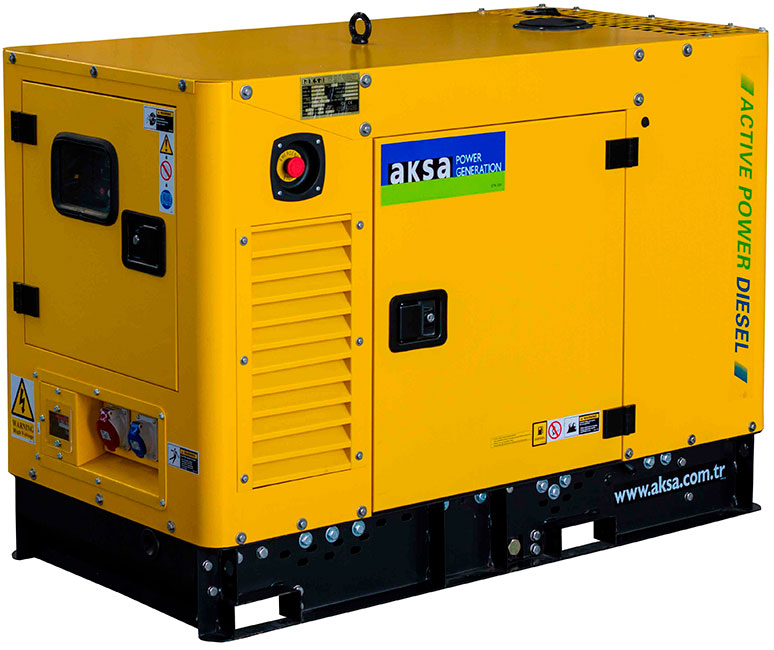
For use at the dacha generator as a permanent source of energy, you need equipment with liquid-cooled engine.
Benefits:
- Greater efficiency;
- Smaller equipment size;
- Lower noise.
Disadvantages:
- High price;
- Design complexity;
- It is installed on equipment with a capacity of 4 kW.
Air cooling
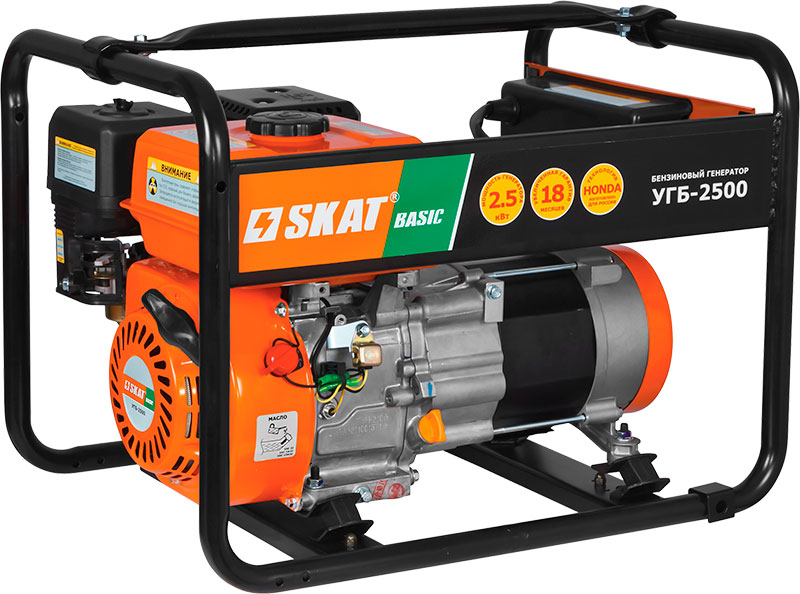
For the dacha generator, which will not be operated around the clock or long periods of time, air cooling of the engine is acceptable. Most models offered by manufacturers are cooled with air.
Benefits:
- The simplicity of the cooling system;
- Low price.
Disadvantages:
- The fan draws dust and dirt in;
- Lack of effectiveness.
Generator selection options for giving
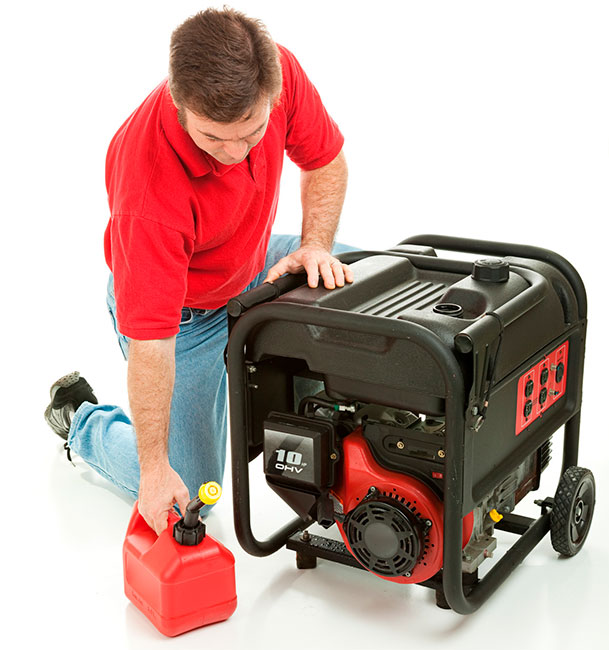
Selecting an autonomous source of electricity, one should pay attention to the following equipment characteristics:
Installation power
It is necessary to sum up the power of electrical devices, which the generator will serve simultaneously. When calculating for appliances with an electric motor (tool, refrigerator, washing machine) starting power is taken into account. To the resulting value must be added 20%. As a rule, gas generators are used at the summer cottage, their power is from 2 kW to 5 kW or diesel engines with a power from 5 to 10 kW.
Type of fuel used
Gasoline generators are not designed for continuous use. For continuous use pick diesel or gas equipment.
Alternator Type
The synchronous generator is recommended for giving where devices sensitive to differences of tension are used. Asynchronous - for the suburban area, the owner of which is building the house, regularly uses a welding machine, erecting greenhouses and other structures.
Fuel tank capacity
From the volume of the tank depends on the duration of the diesel or gasoline generator without interruption. With low power equipment volume tank about 5-6 liters. With an average - from 15 to 30 liters.
Control mode
The following control modes are possible:
1. Manual - start with the use of physical force (as a rule, on low-budget models of low power up to 4 kW).
2. Electrostart - start by pressing a button or turning a key.
3. Autostart - used for a backup generator that automatically goes into operation when the main electrical line is turned off.
The easier the launch, the more expensive the model. If you can pay for comfort, it is worth taking a generator with electrostart or auto start.
Which generator to choose?
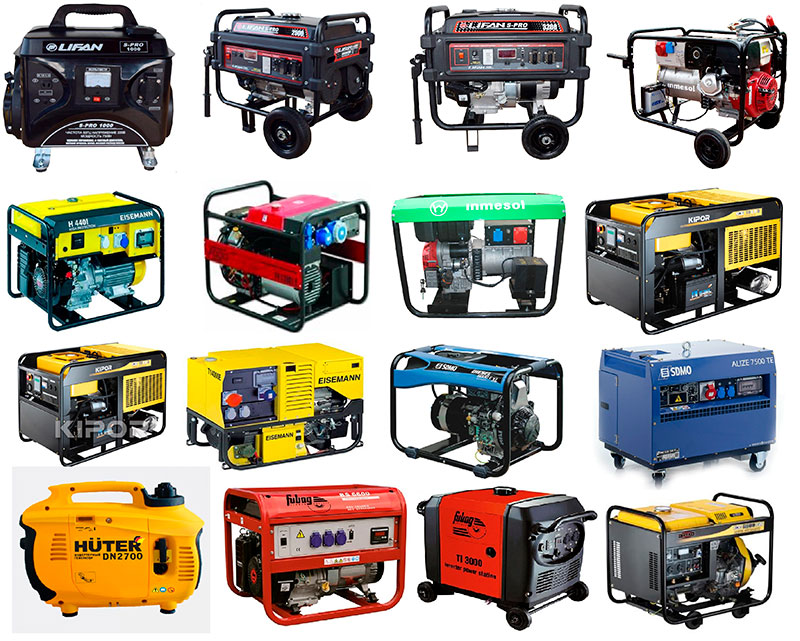
The choice of a generator depends on the future conditions of its operation, the tasks imposed on it by the owner and the scale of the problem:
1. If the cottage is small, with a minimum number of electrical appliances, and its owners are relaxing at their summer cottage on summer weekends, you can purchase a gasoline generator with a capacity from 1 to 2.5 kW.
2. The owners of the gasified summer cottage, visiting it all year round, it is advantageous to purchase a gas installation, calculating the required power.Perhaps you should consider the option of a generator with heating function housing.
3. The diesel generator can be recommended to the summer resident who has a country house, where it is proposed to use the generator for long periods of time during the summer holidays.
How much does a generator cost to give
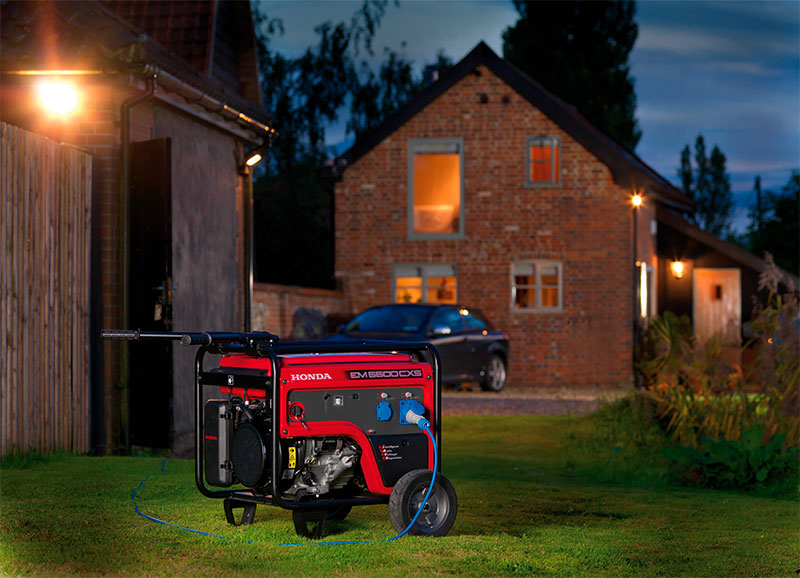
The price of the generator depends on the brand of the model, its technical characteristics, the availability of options:
1. For a device with a capacity of 2 to 2.5 kW, using diesel as fuel, will have to pay from 40 to 75 thousand rubles.
2. Similar gas equipment will cost from 18 to 40 thousand rubles.
3. The price of a gas generator with the same capacity from 10 to 35 thousand rubles.
The price for equipment of various configurations with a capacity of about 5 kW varies depending on the type of fuel:
1. Gasoline - from 22 to 450 thousand rubles.
2. Diesel - from 48 to 760 thousand rubles.
3. Gas - from 40 to 500 thousand rubles.
It will be interesting to friends too


